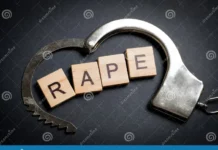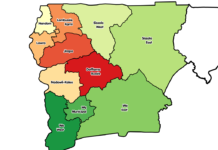
On 15 July 2025, the Amasaman High Court formally refused bail to Patricia Asiedua Asiamah, better known as Nana Agradaa—pending the outcome of her appeal against a 15-year prison sentence imposed on her by the Accra Circuit Court.
According to GhanaRegions.com analyst, the High Court’s 15 July decision reflects a strict judicial posture: no bail pending appeal unless compelling case openings are proven.
Agradaa’s legal team faces an uphill battle, hinging on showing procedural error or judicial prejudice.
Beyond her fate, this case stands as a cultural and legal milestone, signaling Ghana’s evolving stance on faith-based fraud and reinforcing the checks and balances of its judiciary.
Why Nana Agradaa’s bail was refused
Risk of flight & insufficient grounds: The High Court held there were “no strong grounds” to justify releasing her during appeal, implying she may abscond or interfere with the judicial process.
Scope of appeal unresolved: The court directed the original trial court to submit all legal documents necessary for the appeal, meaning it won’t entertain bail until fully reviewing her grounds.
Timeline & legal context
Date Event
3 Jul 2025 Circuit Court convicts Agradaa: sentenced to 15 years with hard labour for defrauding by false pretence (money‑doubling scheme on Today‑TV) and charlatanic advertisement.
7 Jul 2025 Appeal filed at High Court challenging both conviction and sentence, citing judicial bias, lack of evidence, and an excessively harsh sentence .
15 Jul 2025 High Court denies bail and orders complete case records for review.
What this means legally
Custody during appeal: Agradaa must remain behind bars until the appellate court completes its review—she cannot serve bail in lieu of appeal engagement.
Strength of appeal evidence: The court’s insistence on full documentation suggests it is thoroughly evaluating claims about due process and bias.
Appellate trajectory: The High Court now prepares for deeper examination, after which Agradaa could seek further stay or launch supreme court endeavours.
Impact and implications
Message against spiritual fraud:
The refusal reinforces Ghana’s increasing resolve to clamp down on elitist spiritual scams—a warning to televangelists exploiting vulnerable followers.
Public confidence in rule of law:
Many citizens view this as judicial assertiveness, showing that even high-profile figures are not above legal consequence—bolstering trust in impartial justice.
Debates on fairness
Supporters argue her right to fair trial is at stake, especially with allegations of judicial bias; critics assert extended custody suppresses appeal rights.
Legal precedent
Her appeal could set precedent on bail policy during appeals, influencing future standards—particularly for white-collar or charlatanic offenses.
What comes next
Appeal review phase: High Court examines trial conduct—whether bias occurred, evidence was misapplied, or sentencing was unduly harsh.
Potential bail reconsideration: If substantial appeal grounds surface, a subsequent bail request may succeed.
Further judicial escalation: A decision against her could pave way for application to Ghana’s Supreme Court, prolonging the legal saga.
Public & political reaction: Advocacy groups and civic observers will likely scrutinize the proceedings, possibly impacting future regulation of spiritual fraud.
Agradaa was convicted based on:
- Testimonies from victims who claimed they paid for spiritual money doubling.
- Video footage from her own TV station, Today-TV, where she advertised rituals.
- Her own recorded admissions of operating spiritual services with “fees.”
Cultural Shift Underway
Regulators and lawmakers may push for tighter laws on:
Religious TV content
Spiritual advertising
Consumer protection in the religious sector
Citizens may grow more skeptical of miracle-based religious commerce, especially amid economic hardship.
Final Thought
The case of Nana Agradaa is more than a courtroom battle—it’s a litmus test for Ghana’s handling of faith, fraud, and freedom. It highlights the tension between:
Protecting the vulnerable from manipulation
Preserving religious autonomy in a spiritual society
Enforcing accountability regardless of social status


















































![Morocco knock out Spain on 3-0 penalties to reach FIFA World Cup 2022 quarter-final, Morocco vs Spain (0-0) (3-0) [Video]. Morocco knock out Spain on 3-0 penalties](https://ghanaregions.com/wp-content/uploads/2022/12/Watch-Morocco-vs-Spain-0-0-and-3-0-penalties-218x150.jpg)



































